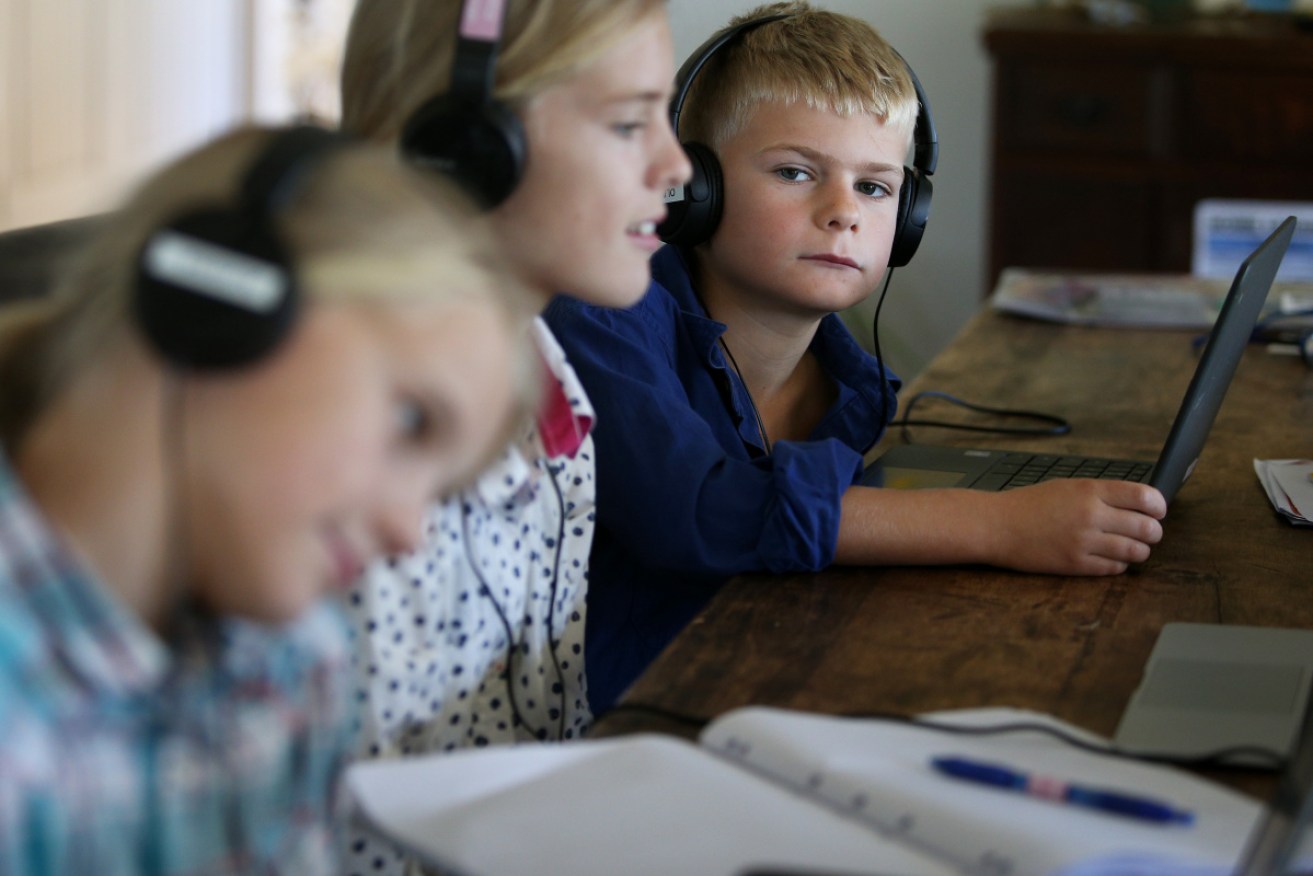Schools top of the agenda for national cabinet meeting


A consistent message on school attendance is top of the agenda for Thursday's national cabinet meeting. Photo: Getty
Authorities will consider ways to make Australian schools safer as national cabinet meets for the first time in a week, with the Prime Minister pushing for increased attendance.
Scott Morrison will lead Thursday’s meeting with state and territory leaders, some of whom are maintaining strict advice about keeping children at home during the coronavirus pandemic.
Mr Morrison is worried about too many students being forced into distance learning.
“I’m very concerned about the quality of education that’s going to be delivered to our kids this year,” he told 6PR radio.
On Wednesday, Mr Morrison used a social media video pleading with teachers to keep classrooms across the country open.
“The education of our children hangs in the balance,” he said.
Deputy chief medical officer Nick Coatsworth said the leaders would look at how to make schools safe, but added that would not include teachers being made to wear personal protective equipment such as face masks.
He said there were 136 coronavirus cases, or about 2 per cent of all cases, in Australians aged between five and 18-years-old.
“It quite clearly affects a lower proportion of children,” he said.
However, Victoria’s chief health officer Brett Sutton maintains schools should undertake remote learning for term two, which has just started in the state.
Tweet from @VictorianCHO
However, NSW Premier Gladys Berejiklian wants students in that state to have a path for returning to school.
“I have been saying openly the first couple of weeks of term two will be the same arrangements (online learning) and that will give us some time to reintroduce face-to-face teaching,” Ms Berejiklian told Today on Thursday.
The nation’s coronavirus death toll rose to 63 on Wednesday, with a woman in her 60s becoming the ACT’s third victim after catching the virus while travelling on the ill-fated Ruby Princess cruise ship.
So far, 6447 Australians have caught the disease, with more than 3600 recovered.
Dr Coatsworth said an outbreak in north-western Tasmania showed the risks of the virus.
“It is a sobering reminder of the realities of a new virus in a community where there is no immunity,” he said.
Governments are working rapidly to increase intensive care capacity, expand testing arrangements and other health measures.
The federal government is also working on an app to track people’s movements that could quickly help trace contacts of those newly diagnosed with the virus.
Singapore, where about 20 per cent of people have signed up to the app, has provided coding information to Australia for development.
Treasurer Josh Frydenberg discussed the state of the global economy again with his G20 colleagues overnight.
Mr Frydenberg stressed the need for government to coordinate economic policies, and for central banks to synchronise their actions on monetary policies.
He also reiterated calls for borders to remain open to allow the free flow of urgent medical supplies and equipment needed to fight the pandemic.
The International Monetary Fund expects the Australian economy to shrink by 6.7 per cent this year, more than double the global rate, amid the coronavirus crisis.
-with AAP








